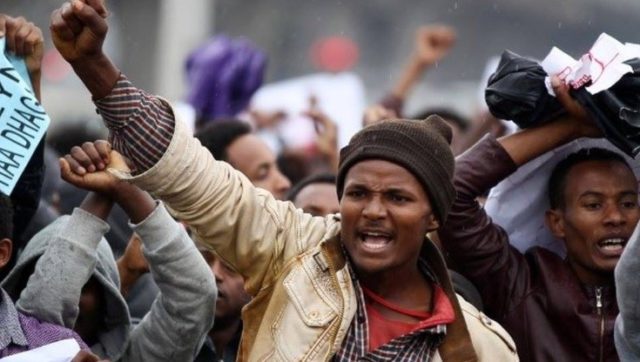Ethiopia’s prime minister has for the first time rejected calls by the UN and EU for independent investigations into the deaths of hundreds of people during months of anti-government protests.
Hailemariam Desalegn has said that Ethiopia is able to carry out the investigations itself.
Protesters from the Amhara and Oromia regions have been complaining about political and economic marginalisation.
The government has imposed a state of emergency in response to the protests.
The country was hit by an unprecedented wave of demonstrations, which began in November 2015.
International rights groups have said that hundreds of people lost their lives in incidents where police and protesters clashed.
In the past, the government has disputed the figures and said that the security forces were responding to what were described as “anti-peace forces”.
Mr Hailemariam told the BBC’s Emmanuel Igunza that an investigation by Ethiopia’s Human Rights Commission, a body created by the constitution, was the only way of dealing with the issue.
He said that the commission was an independent institution but admitted that it “lacked capacity” and said that it could be strengthened.
He said Ethiopia’s sovereignty should be respected and rejected the call for external investigations.
Zeid Raad Al Hussein, the UN High Commissioner for Human Rights, had on August last year called for international observers to investigate the killings after accusing security forces of using live ammunition against protestors in the Amhara and Oromia regions.

























